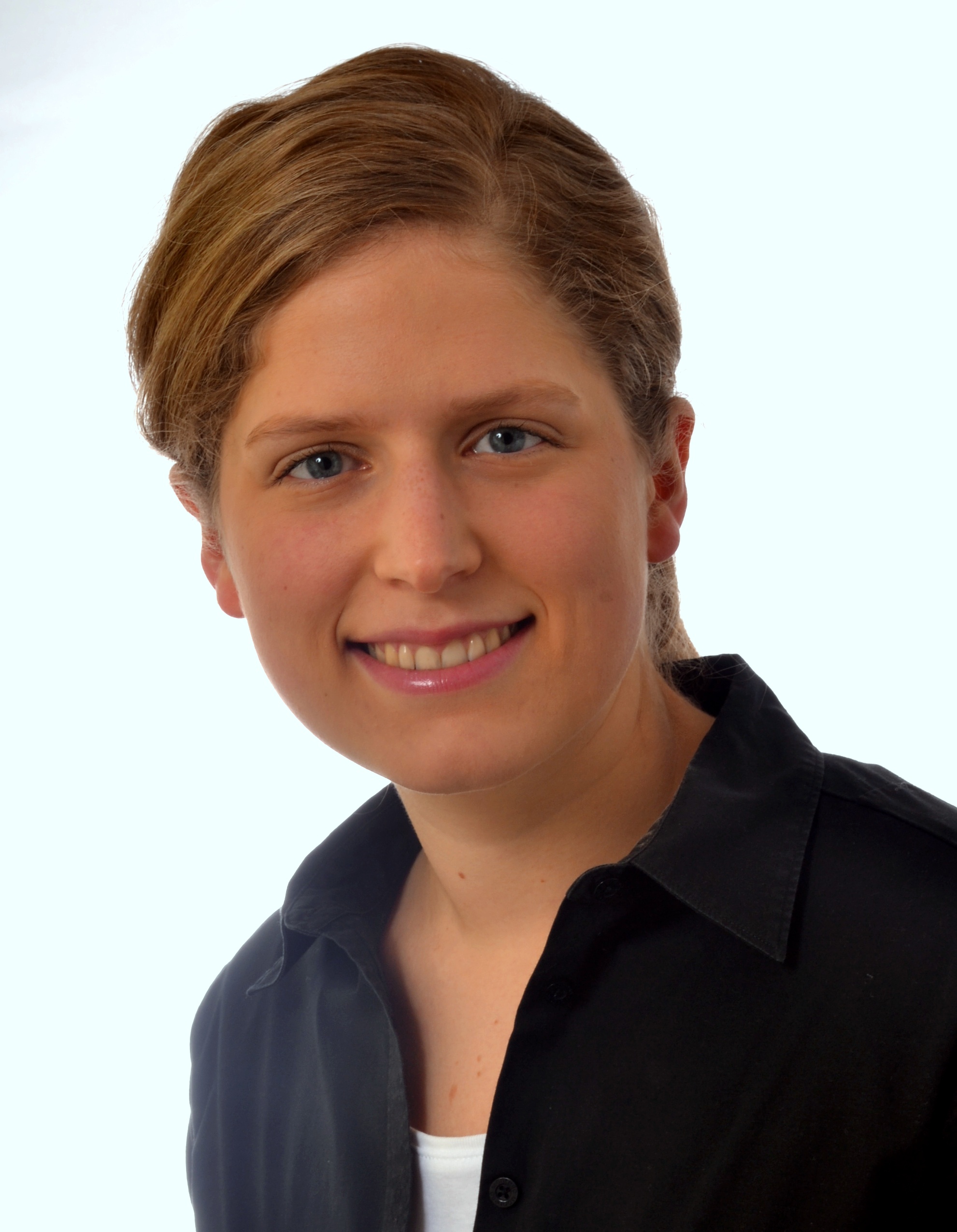Dr. Naomi Schneider
Dr. Naomi Schneider
| office: EN-B 208 address: Dr. Naomi Schneider Geomathematics Group Emmy-Noether-Campus University of Siegen Walter-Flex-Str. 3 57068 Siegen |  | Tel: from abroad: +49 271 740 17712 from Germany: 0271 740 17712 Fax: from abroad: +49 271 7401 17712 from Germany: 0271 7401 17712 |
E-mail:
Naomi.Schneider (a) uni-siegen.de (please replace ' (a) ' by '@').
Project description:
In the last decade, the Inverse Problem Matching Pursuits (IPMPs, i.e. the Regularized Functional Matching Pursuit (RFMP) and the Regularized Orthogonal Functional Matching Pursuit (ROFMP)) have been developed in the Geomathematics Group Siegen in order to solve ill-posed inverse problems in the planetary sciences as well as medical imaging. These algorithms have been proven to construct competitive alternative methods for, e.g., the downward continuation of the gravitational potential. As matching pursuits, they iteratively construct an approximation of the gravitational potential from a 'dictionary' by minimizing a Tikhonov functional. Such a dictionary can generally be considered as an overcomplete set of trial functions, like spherical harmonics, radial basis functions and wavelets as well as scalar Slepian functions. In my PhD-Thesis, I developed a learning add-on for these algorithms such that a truly infinite dictionary may be used. The learning algorithms are summarized analogously by the abbreviation Learning IPMPs (LIPMPs).
In the current project, started in October 2020, we are working together with the geoscientists Karin Sigloch at the University of Oxford and Nico Sneeuw at the University of Stuttgart in order to develop the (L)IPMPs further: we want to enable their use in seismology in general and aim to use them in experiments which are tailored from a geoscientist's perspective. Both of these challenges demand to develop strategies, in particular, with respect to upscaling and a more sophisticated regularization.
I am interested in
inverse problems, constructive approximation, optimization,
machine and dictionary learning, artifical intelligence, data science,
geosciences, medical imaging,
software development and high performance computing
Publications
- N. Schneider (2022), (L)IPMP source code, v1-2020 (PhD-Thesis), in the collection: (Learning) Inverse Problem Matching Pursuits, publication of software at FoDaSi - research data repository of the University of Siegen, 2022.
N. Schneider and V. Michel (2022), A dictionary learning add-on for spherical downward continuation, Journal of Geodesy, 96 (2022), article 21 (22pp), https://link.springer.com/article/10.1007/s00190-022-01598-w
N. Schneider (2020), Learning Dictionaries for Inverse Problems on the Sphere, Dissertation, AG Geomathematik, Universität Siegen, http://dx.doi.org/10.25819/ubsi/5431
- N. Schneider and V. Michel (2020), Dictionary learning algorithms for the downward continuation of the gravitational potential, presented at the EGU2020: Sharing Geosciences Online, https://doi.org/10.5194/egusphere-egu2020-2367
- V. Michel and N. Schneider (2020), A first approach to learning a best basis for gravitational field modelling, GEM – International Journal on Geomathematics 11, article 9, https://link.springer.com/article/10.1007/s13137-020-0143-5
- S. Leweke, V. Michel, N. Schneider (2018), Vectorial Slepian functions on the ball, Numerical Functional Analysis and Optimization, 39 (2018), 1120-1152, https://www.tandfonline.com/doi/full/10.1080/01630563.2018.1465953
Previous presentations: Conference/Workshop/Seminar, title
- 09.2022: Symposium on Inverse Problems - From experimental data to models and back, Learning a regularized solution from infinitely many trial functions
- 05.2022: European Union General Assembly 2022, Experimenting with automatized numerical methods
- 02.2022: Geoseminar TU Freiberg (invited), Matching pursuits with a learning add-on for two geoscientific challenges
- 02.2022: Mathematics of Wave Phenomena, Minisymposium MS 18 Modelling and Inversion of Seismic Waves on the Global and Regional Scale (co-organized), A novel approach to travel time tomography for ray theory
- 09.2021: 2nd Alps-Adriatic Inverse Problems Workshop 2021, Algorithmic improvements via a dictionary learning add-on
- 04.2021: vEGU2021: Gather Online, 10 years of matching pursuits for inverse problems: what's been done and what's to come
- 05.2020: EGU2020: Sharing Geosciences Online, Dictionary learning algorithms for the downward continuation of the gravitational potential, doi 10.5194/egusphere-egu2020-2367
- 07.2019: Applied Inverse Problems Conference 2019, Minisymposium Inverse Problems in Planetary Sciences and Medical Imaging (invited), A dictionary learning approach for inverse problems on the sphere
- 04.2019: European Geosciences Union General Assembly 2019, Advancements for gravity field modelling using learning techniques
- 10.2018: Geodätische Woche, Wie lernt man eine geeignete Basis für die Gravitationsfeldmodellierung?
- 05.2018: Inverse Problems and Approximation Techniques in Planetary Sciences, Modelling Earth's gravitational potential with a learned best basis
- 04.2018: European Geosciences Union General Assembly 2018, Learning an optimized dictionary for gravity field modelling
- 09.2017: Geomathematics Meets Medical Imaging, Vectorial Slepian Functions on the Ball
- 09.2016: Approximation Methods and Data Analysis, Vectorial Slepian Functions on the Ball
